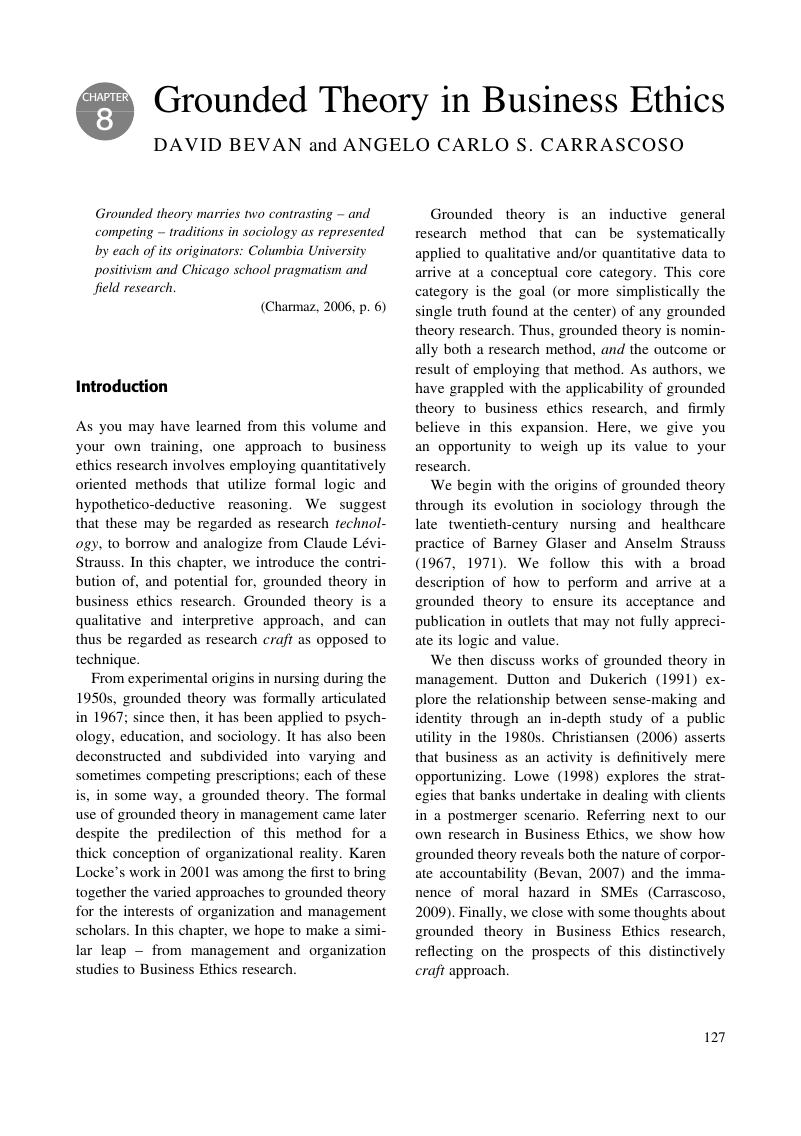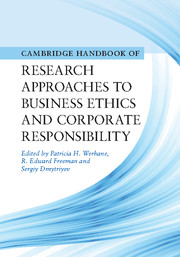Book contents
- Cambridge Handbook of Research Approaches to Business Ethics and Corporate Responsibility
- Cambridge Handbook of Research Approaches to Business Ethics and Corporate Responsibility
- Copyright page
- Contents
- Figures
- Tables
- Contributors
- Introduction
- Part I Philosophical Approaches
- Part II Empirical Approaches
- Qualitative Approaches
- Chapter 6 Normative Assessments in Empirical Business Ethics Research
- Chapter 7 Descriptive Ethics
- Chapter 8 Grounded Theory in Business Ethics
- Chapter 9 Discourse Analysis as a Method for Business Ethics and Corporate Responsibility Research
- Quantitative and Experimental Approaches
- Contemporary Approaches
- Case Study Approaches
- Part III A Researcher in the Spotlight
- Index
- References
Chapter 8 - Grounded Theory in Business Ethics
from Qualitative Approaches
Published online by Cambridge University Press: 10 November 2017
- Cambridge Handbook of Research Approaches to Business Ethics and Corporate Responsibility
- Cambridge Handbook of Research Approaches to Business Ethics and Corporate Responsibility
- Copyright page
- Contents
- Figures
- Tables
- Contributors
- Introduction
- Part I Philosophical Approaches
- Part II Empirical Approaches
- Qualitative Approaches
- Chapter 6 Normative Assessments in Empirical Business Ethics Research
- Chapter 7 Descriptive Ethics
- Chapter 8 Grounded Theory in Business Ethics
- Chapter 9 Discourse Analysis as a Method for Business Ethics and Corporate Responsibility Research
- Quantitative and Experimental Approaches
- Contemporary Approaches
- Case Study Approaches
- Part III A Researcher in the Spotlight
- Index
- References
Summary

- Type
- Chapter
- Information
- Cambridge Handbook of Research Approaches to Business Ethics and Corporate Responsibility , pp. 127 - 137Publisher: Cambridge University PressPrint publication year: 2017



